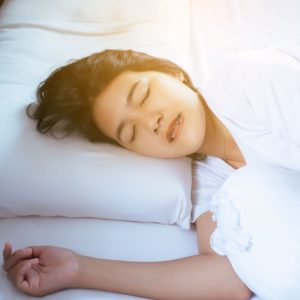
How Does a Home Sleep Study Work?
During a home sleep study, you will connect yourself to equipment that will monitor your sleep. Our team at eos Sleep will teach you how to use the equipment and supply you with the equipment you need to conduct the home sleep study. Before going to bed, you will simply attach the sensors to the designated locations on your body, turn on the machine, make sure all of the sensors are reading properly, and go to sleep as you normally would.
Benefits of a Home Sleep Study
Because coming into a lab to sleep can be disruptive and prevent you from sleeping the way you normally would at home, it’s possible that a home sleep study will capture more accurate information about your sleep patterns, oxygen level, and heart rate. The biggest disadvantage is that the lab tech will not be able to physically observe your sleep. However, you will be able to gather enough information from a home sleep study to help diagnose sleep conditions and determine whether or not you have sleep apnea.
If you believe you may benefit from an at home sleep study, the first step is to consult with a sleep specialist. Ear, nose, and throat experts at eos sleep are trained and practiced in treating sleep apnea with CPAP. Call 1-212-873-6036 today or fill out the form on this page to schedule an appointment or to learn more about eos sleep treatment options.
